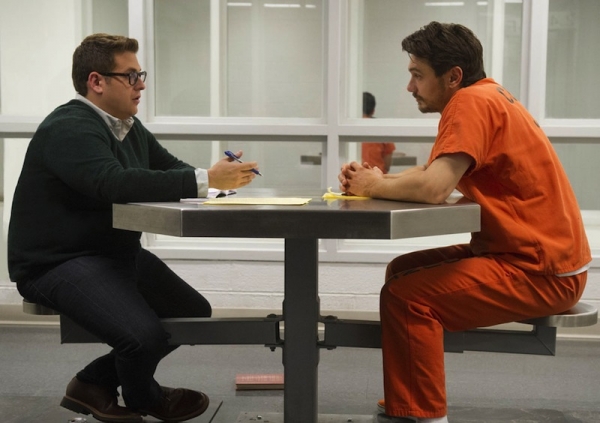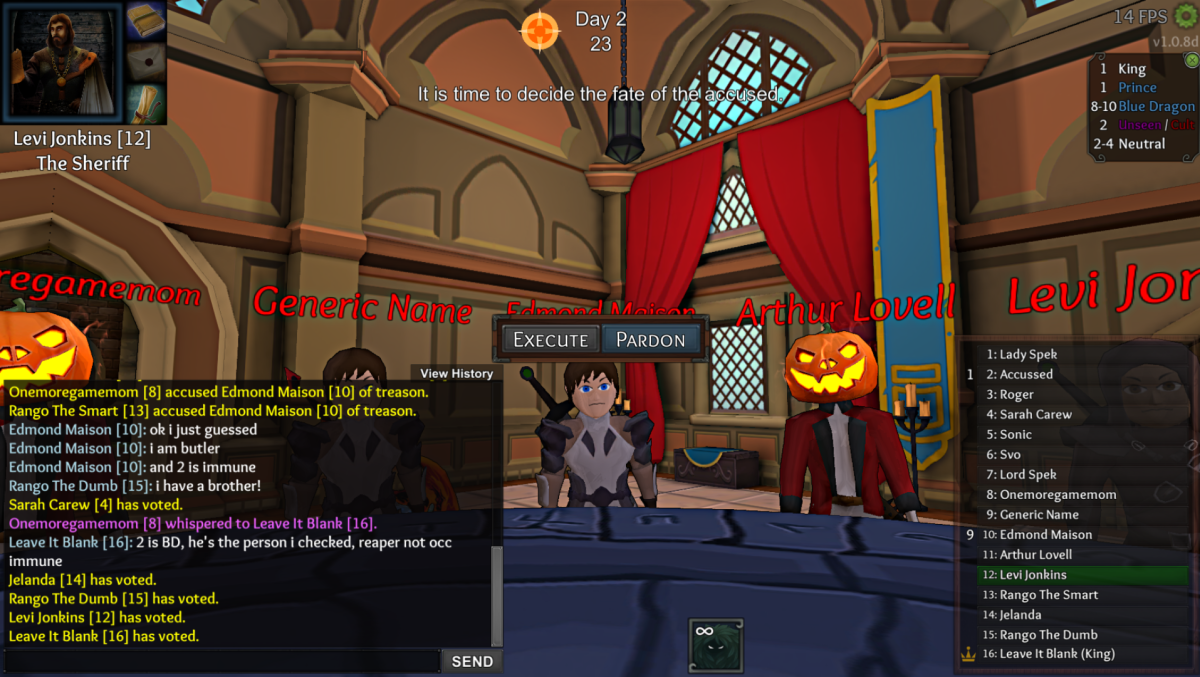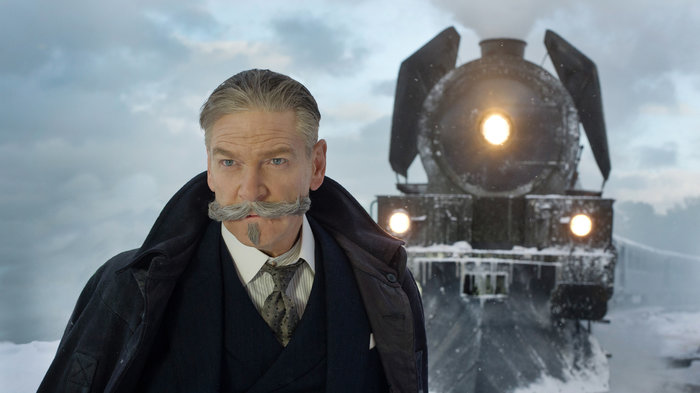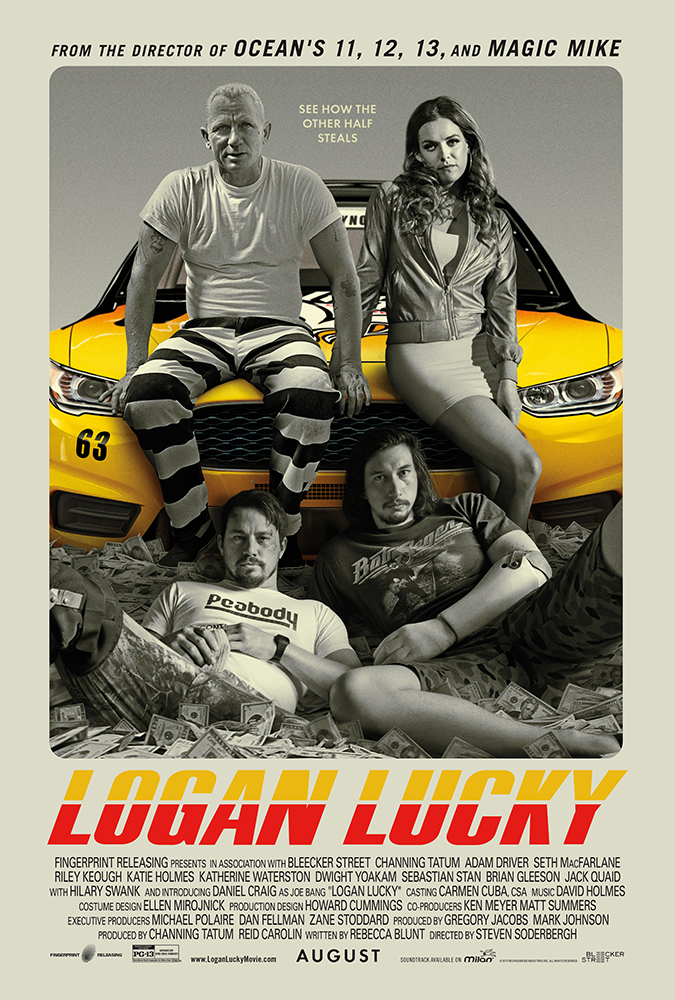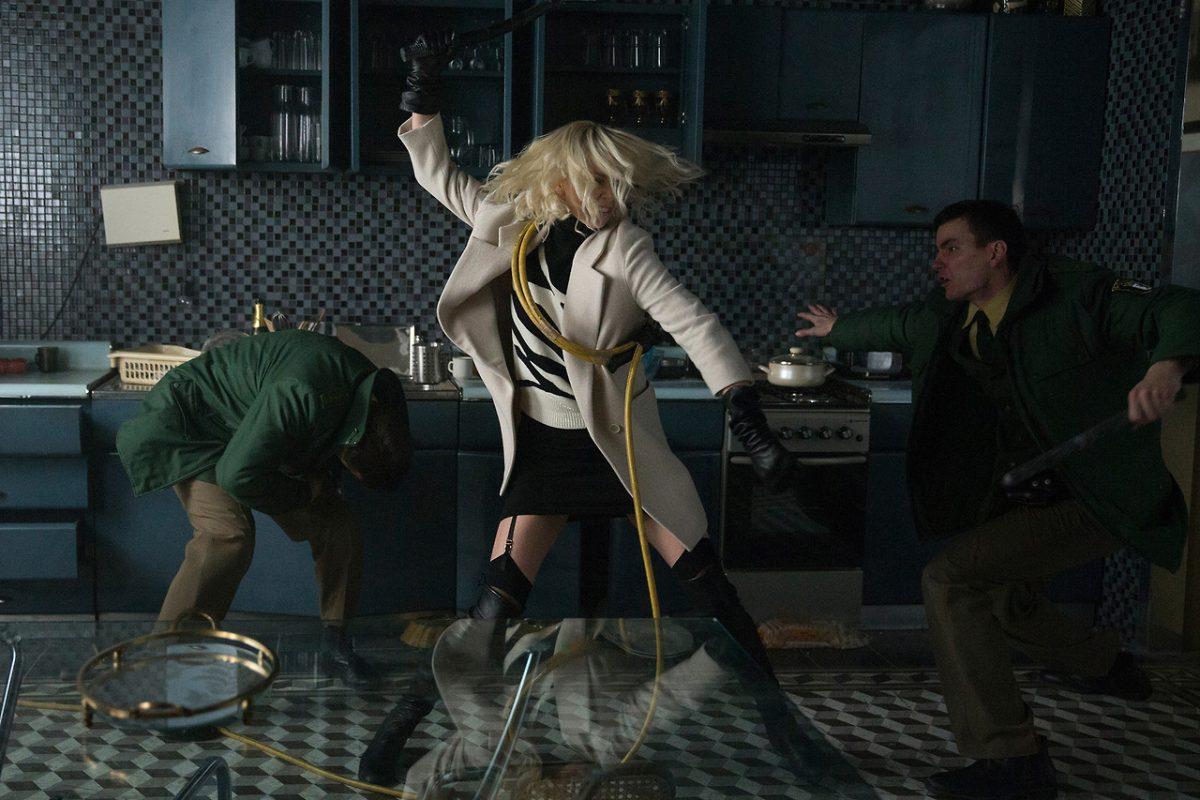“True Story,” based on Michael Finkel’s memoir of the same name, fails to be as interesting as the true story.
Finkel’s stories were on multiple covers of The New York Times until it was revealed a piece he wrote on modern slavery in Africa was partially fictionalized with the use of composite characters. While he tries to recover from the incident, Finkel (Jonah Hill) gets word of an unbelievable character; a man named Christian Longo (James Franco) has been pretending to be Finkel while on the run after being accused of murdering his wife and children in Oregon.
The film is mostly a two-hander, with Finkel interviewing Longo in a jail conference center. Longo admits to impersonating Finkel because he’s a fan of his work and agrees to be interviewed by him on the condition that the results be published after the trial. As the trial approaches, it’s unclear who has the upper-hand and what Longo’s intentions really are.
Yet, none of that inherent drama is present here. Other characters in the film keep referencing Longo’s creepy calm and that he must have a plan, but this doesn’t come across at the end of the film. Longo is no Hannibal Lecter — it doesn’t feel like he is always a step ahead and he’s smarter than everyone in the room. It feels more like he was making it up as he went along and was easily suggestible, completely willing to contradict himself. It’s hard to tell if the character was lost in the performance by Franco or not, but it doesn’t feel like the script was helping.
Likewise, Hill as Finkel isn’t as impressive as Jodie Foster as Clarice Sterling was in “The Silence of the Lambs” either. He’s stiff and he doesn’t come off as competent as someone whose pieces covered The New York Times should be. Felicity Jones, as Hill’s partner Jill, is mostly on the sidelines in the film, but her confrontation with Longo is easily the bright spot of the film.
This is director Rupert Goold’s first feature film. He’s working on a screenplay he co-wrote with David Kajganich that is based on Finkel’s novel. That last tidbit seems to be the problem with the film.
Finkel’s real-life obsession with and inability to comprehend Longo is present in “True Story.” The film spends the first ten or fifteen minutes attempting to sympathize the audience with Finkel. “True Story” seems like his half-baked explanation for the last decade of his life.
While some might say that the film circumvents classical Hollywood mode by having an ambiguous ending, it seems more appropriate to argue that “True Story” isn’t articulating its message well. Goold doesn’t know what the point of this film should be or where to focus the film. Perhaps, something got lost in translation from novel to film.
When films are based on true stories, it’s disappointing when the more interesting part of the story is described in the end titles. This happens here, and while it won’t be spoiled in this interview, “True Story” would have been better if it had included more of that.
The recent success of the HBO show “The Jinx” and the Serial podcast proves that audiences are hungry for this type of content, but in the end, “True Story” seems like a wasted opportunity to capitalize on an interesting contemporary story.

